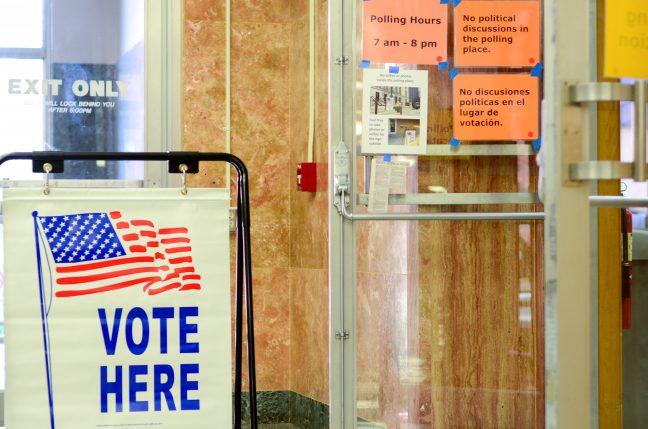When you go to the voting booth Tuesday, you will see 6 names under governor, not just the standard Republican and Democrat candidates — Phillip Anderson, Michael White, Maggie Turnball and Arnie Enz. But on the stage of the Wisconsin Broadcasters Association gubernatorial debate were only 2 individuals, Democrat Tony Evers and Republican Scott Walker.
Edgewood High School hosted a gubernatorial forum Oct. 21. All six candidates were invited — four accepted the invitation. Anderson, White and Enz attended, Turnball accepted but had travel delays. Evers offered a surrogate representative, while Walker did not respond at all. Students at the forum said the beliefs and views put forth are necessary to be heard, even saying “they represent a lot more of what people believe than the traditional two-party system.”
These high school students are absolutely correct. The traditional two-party system blocks third-party candidates from gaining ground in executive and legislative positions. Furthermore, other institutions, such as the WBA, identify themselves as “non-partisan” but often create rules which restrict independent candidates from the debate stage. The WBA sets rules to weed out what they consider unreasonable candidates and to keep the debate streamlined and beneficial to the electorate. One such rule they have used is that candidates must have raised at least $250,000 and achieved a certain polling level.
These policies are outrageous and are being used to suppress third-party candidates. If the WBA wants to call themselves “non-partisan,” they ought to consider allowing additional parties to be involved. Given that these candidates are on the ballot, they should have the opportunity to be heard in such a forum.
Take Phil Anderson, president of the Libertarian Party of Wisconsin. Anderson ran for U.S. Senate in 2016 and received 3% (87,531) of the vote. He is now running for governor, alongside Patrick Baird. According to the Marquette Law School Poll, Anderson is at 7% among all registered voters, and 5% among standard likely voters. Obviously, these numbers will not be enough to win the election, but they certainly warrant the right to be on the debate stage. It is almost certain Anderson would gain ground if given the chance to be heard by Wisconsinites.
If the citizens of Wisconsin heard Anderson, in contrast to the views and policies of both Evers and Walker, it’s highly doubtful that they would not find his candidacy appealing. Anderson is a veteran and a realtor out of Fitchburg and a general manager for Green Cab of Madison. He is also a University of Wisconsin alumnus with a B.A. in geography, and also holds an M.A. in applied theology from University of Balamand.
Anderson and his running mate, Baird, want to bring less government and more personal freedom to Wisconsin. They’ve vowed to bring control back to local municipalities, eliminate regulatory hurdles, anti-competitive licensing, and excessive taxation. Anderson believes that the Foxconn deal is — simply put — crony capitalism. Finally, Anderson wants to end the state income tax, focus on funding by other means and decrease public spending. And, to no surprise, he believes in the legalization of marijuana, among other drugs.
The majority of these goals are by no means lofty or radical. Many Americans, particularly students at UW, seem to agree with these goals: giving power and freedom back to individuals, truly “draining the swamp,” and combating corruption and corporatism in government. They want government out of your life.
The only way Anderson, or any of the other candidates, can buck the two-party system is if they receive votes. Many people say they’re voting for the “lesser of two evils,” or that they would vote for these candidates if they could actually win.
First of all, voting for the lesser evil is still voting for an evil. And we’ve seen very little good governance from both sides of the spectrum — so why continue with the same voting habits? That’s what people like to call “insanity” — doing the same thing over and over again, but expecting a different result each time.
As far as chances of winning goes, Democrats and Republicans will use whatever measures they can to maintain control over the system: Absurd ballot access laws, increased campaign spending, debate exclusion and more. And of course, these candidates won’t win if people don’t vote for them. If you’re thinking you would vote for a candidate only if the candidate could win, imagine how many other people are saying the exact same thing. If you and all those other people discontent with the two-party system actually voted third-party, such a candidate would actually have a chance.
And even now, if you as an individual vote third-party, you’re using your vote just as intended — to show your beliefs and preferences. Your vote is a tool of change and it can be used to show dissent. Use your vote wisely this election. Consider your choices and vote for a candidate you actually agree with, not just the candidate who the system has chosen for you.
Andrew Stein (andrew.stein@wisc.edu) is a senior majoring in political science and economics.


